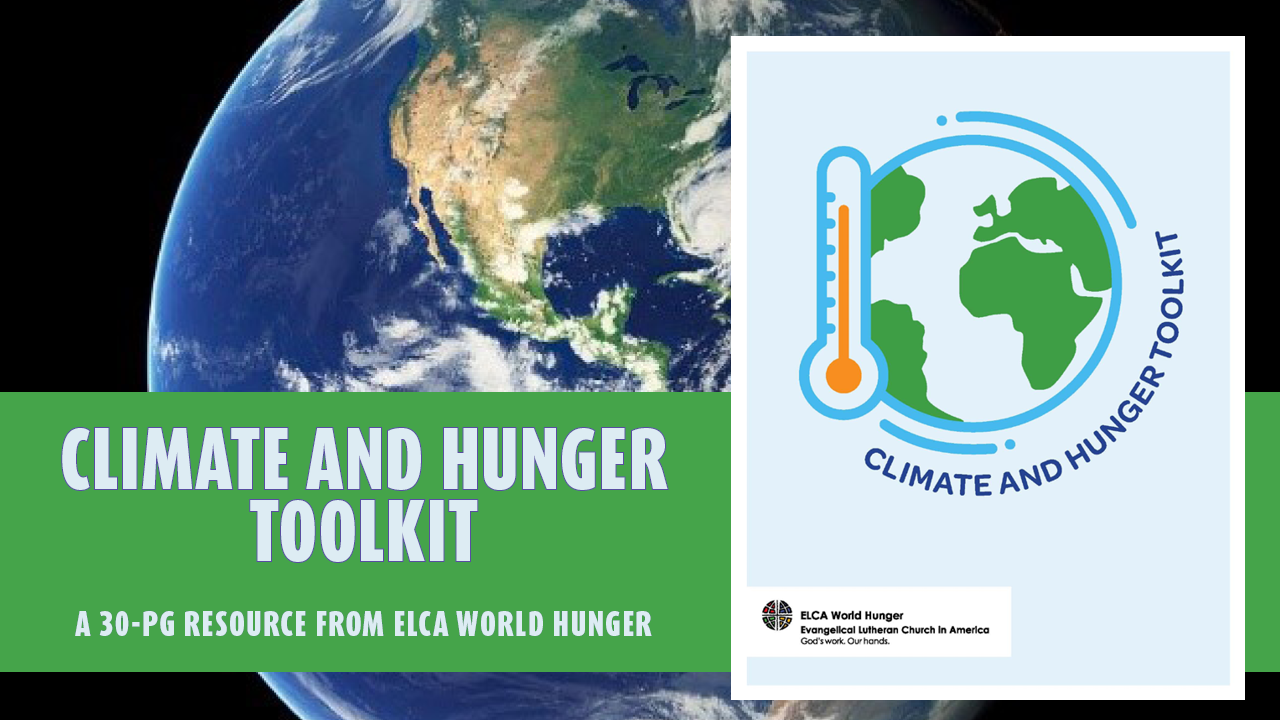Climate and Hunger Toolkit from ELCA World Hunger
How to Use This Resource
This resource contains a collection of activities that can be used together or separately. The “Opening” section contains activities meant to help participants explore the connections between hunger, climate change and their faith. The “Learning” section contains activities for diving deeper into the different intersections between hunger and climate change such as nutrition, transportation and weather. The “Closing” section will help you summarize the learnings from your session and plan for future community activities on hunger and climate change.
Each activity can be used on its own, or activities can be put together to create a longer learning session. To create a longer learning session, choose one activity each from “Opening,” “Learning” and “Closing.” Individual activities are great for short adult-learning sessions, youth groups, confirmation class and a variety of forums. Activities can also be used over days or weeks, such as during Lent or Advent, to create a congregational emphasis on the topic of hunger and climate change.
Each activity is labeled with an activity level that you can use to guide your planning. A high activity level means a lot of moving around a space and/or additional set-up. A medium activity level means some sitting, some moving around a space and some advanced set-up. A low activity level means little to no moving around a space and minimal set-up.
How to Talk About Climate Change
As you prepare to use this resource, remember that some people might not be comfortable with the words “climate change.” Consider focusing on words such as “care for creation,” “creating safe communities for everyone” and “stewardship.” (For more guidance on different ways to talk about climate change, check out ELCA Witness in Society’s Let’s Talk Faith & Climate: Communication Guidance for Faith Leaders.) This toolkit is designed for well-seasoned climate activists, people new to talking about the environment and everyone in between! The activities and lessons help make the most recent research on climate change accessible, with an eye toward the role faith communities can play in protecting the environment.

